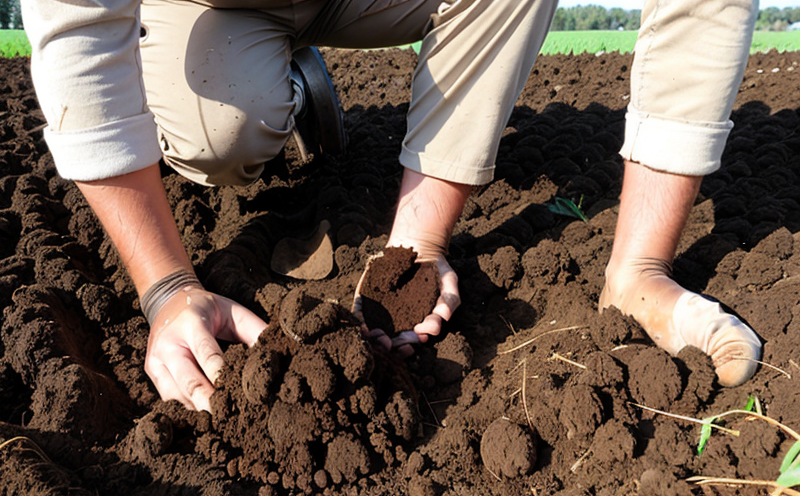Soil Contaminants Testing (Pesticides Residues)
In agriculture and forestry, soil quality is fundamental to sustaining productivity. However, the extensive use of pesticides has led to contamination issues that can adversely affect both the environment and human health. Soil contaminants testing for pesticides residues plays a critical role in ensuring compliance with regulatory standards and maintaining the integrity of agricultural practices.
Pesticides are widely used in agriculture to control pests, weeds, and diseases. While their benefits are undeniable, improper or overuse can lead to pesticide residue accumulation in soil. This contamination can disrupt ecosystems, harm beneficial organisms, and pose risks to human health through food chain transfer. Thus, regular testing of soil for pesticides residues is essential.
Our laboratory offers specialized services for soil contaminants testing focused on detecting specific pesticides residues. Using advanced analytical methods such as Gas Chromatography-Mass Spectrometry (GC-MS), Liquid Chromatography-Tandem Mass Spectrometry (LC-MS/MS), and High Performance Liquid Chromatography (HPLC), we ensure precise identification and quantification of pesticide residues.
The testing process involves rigorous sample preparation, including extraction, cleanup steps like solid-phase extraction or QuEChERS, and instrumental analysis. Our team adheres to international standards such as ISO 17025 for quality assurance and precision in our methodologies. This ensures that the results are reliable and can be trusted by stakeholders.
The importance of this testing cannot be overstated. It helps regulatory bodies enforce compliance with environmental protection laws, guides farmers towards sustainable agricultural practices, supports food safety initiatives, and informs public health policies. By identifying problematic residues early, corrective actions can be taken to prevent further contamination or reduce exposure risks.
Our comprehensive approach ensures that clients receive detailed reports outlining the presence, concentration levels, and potential impacts of detected pesticides residues in their soil samples. This information is vital for making informed decisions about land management practices, crop selection, and pest control strategies.
Benefits
- Compliance Assurance: Stay ahead of regulatory requirements with accurate testing results that meet international standards like ISO 17025.
- Sustainable Agriculture: Promote long-term soil health by minimizing pesticide contamination and supporting eco-friendly farming practices.
- Enhanced Food Safety: Reduce risks associated with contaminated produce by ensuring safe and nutritious crops for consumption.
- Precision Farming: Tailor pest management programs based on localized data, optimizing resource use and reducing waste.
Regular testing not only helps in meeting legal obligations but also contributes to sustainable agriculture practices that benefit both the environment and society. By leveraging our expertise in soil contaminants testing for pesticides residues, you can make well-informed decisions that align with global standards and local regulations.
Why Choose This Test
- Accurate Results: Utilize state-of-the-art GC-MS, LC-MS/MS, and HPLC techniques for precise identification and quantification of pesticides residues.
- Expertise: Our team comprises highly skilled professionals with extensive knowledge in soil science, analytical chemistry, and environmental protection.
- Compliance: Ensure adherence to international standards such as ISO 17025, which guarantees the reliability of test outcomes.
- Custom Solutions: Tailor our services to meet your specific needs, whether it be regular monitoring or one-off assessments.
Selecting this service ensures that you are not only meeting current regulations but also contributing positively towards sustainable agricultural practices. With us, you gain access to cutting-edge technology and experienced personnel who understand the complexities involved in soil testing for pesticides residues.
Quality and Reliability Assurance
We uphold high standards of quality through strict adherence to ISO 17025, which mandates continuous improvement processes and stringent quality controls. Our methodologies are designed to deliver consistent, accurate results that comply with international norms.
To maintain this level of excellence, we invest in regular calibration of instruments, ongoing staff training, and participation in proficiency testing programs recognized by accreditation bodies worldwide. This commitment ensures that every test conducted is reliable and can be trusted for decision-making purposes.
Our quality management systems are structured to minimize errors during sample handling, analysis, and reporting phases. By doing so, we provide clients with confidence knowing their data has been handled meticulously throughout the entire process.





